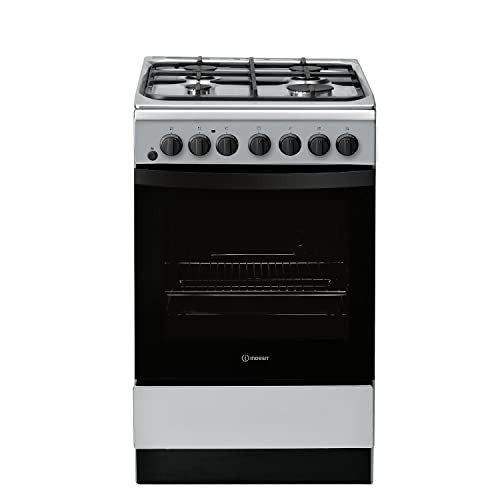Understanding Cookers and Hobs: A Comprehensive Guide
Cooking is an important aspect of daily life, and the development of kitchen home appliances plays a significant role in how effectively and efficiently people prepare their meals. Among these devices, cookers and hobs are 2 of the most essential instruments discovered in modern kitchens. This short article digs into the distinctions in between cookers and hobs, examines their different types, and provides insights on their functions, maintenance, and selection process.
What are Cookers and Hobs?
Cookers
Cookers are thorough kitchen appliances created for cooking jobs, generally combining an oven and a hob. Ovens & Hobs come in various setups and types, dealing with diverse cooking requirements and preferences.
Hobs
Hobs, on the other hand, are more focused devices mainly used for boiling, frying, and other stovetop cooking approaches. Hobs can be standalone units or an integrated part of bigger cookers.
| Function | Cookers | Hobs |
|---|---|---|
| Function | Combines oven and hob | Stovetop cooking only |
| Design | All-in-one system | Separate system or integrated |
| Types | Electric, gas, dual fuel | Gas, electric, induction |
| Installation | Enables more flexibility | Built into the counter top |
| Price Range | Typically greater | Varies widely |
Types of Cookers
1. Electric Cookers
Electric cookers utilize electrical power as their primary power source. They frequently feature an integrated oven and multiple cooking zones on the hob.
Advantages:
- Even heat circulation
- Offered in numerous styles (e.g., freestanding, integrated)
2. Gas Cookers
Gas cookers operate on gas or melted petroleum gas (LPG). They provide instant heat control, making them a favorite amongst professional chefs.
Benefits:
- Instant heat adjustments
- More cost effective operational costs
3. Dual Fuel Cookers
Dual fuel cookers integrate the heat of gas with the efficiency of electric ovens. This setup enables the best of both worlds, supplying control and consistent results.
Benefits:
- Flexible cooking options
- Exact control over stovetop cooking and baking
4. Range Cookers
Range cookers are larger and more effective than basic cookers, including numerous ovens and hobs for extensive cooking jobs.
Benefits:
- Ideal for large households or cooking for events
- Uses various cooking options in one home appliance
Kinds of Hobs
1. Gas Hobs
Gas hobs are favored for their fast heating and strong flame, making them outstanding for burning and stir-frying.
Benefits:
- Instant heat and control
- Suitable with any kind of cookware
2. Electric Hobs
Electric hobs warm up utilizing electric coils or glass-ceramic surfaces, offering a modern-day look and efficient cooking.
Benefits:
- Easier to clean up
- Consistent surface area ideal for various pots and pans
3. Induction Hobs
Induction hobs utilize magnetic fields to heat pots and pans directly, offering fast and energy-efficient cooking.
Advantages:
- Safe (cool surface area after removing pots and pans)
- Energy-efficient and accurate
4. Strong Plate Hobs
These conventional hobs use solid electric plates that warm up gradually.
Advantages:
- Rugged and resilient
- Typically more cost effective than other types
Key Features to Consider
When selecting a cooker or hob, a number of features must be considered:
- Size and Space: Consider the size of your kitchen and the amount of office needed.
- Cooking Style: Choose based upon preference-- gas for control, induction for effectiveness, etc.
- Effectiveness Ratings: Look for energy-efficient models to reduce utility expenses.
- Relieve of Cleaning: Smooth surfaces help with simple maintenance.
- Security Features: Automatic shutoff, flame failure gadgets, and child locks enhance safety.
Upkeep Tips
Preserving cookers and hobs extends their lifespan and makes sure safe operations.
- Routine Cleaning: Wipe down surface areas after use to avoid accumulation.
- Inspect Seals: Check oven door seals frequently for wear and tear to maintain effectiveness.
- Service Regularly: Schedule professional maintenance at least when a year.
- Appropriate Cookware: Use pots and pans proper for your hob type to avoid damage.
Often Asked Questions (FAQs)
What is the distinction between a cooker and a hob?
A cooker integrates an oven and hob in one unit, while a hob is generally a standalone device for stovetop cooking.
Do I need a professional to install a gas cooker or hob?
Yes, professional setup is advised for gas appliances to ensure safety and compliance with regional regulations.
Can I utilize any kind of pots and pans on induction hobs?
Induction hobs require magnetic cookware. Stainless steel or cast iron pots work best. Non-magnetic products will not heat up.
Are electric cookers more energy-efficient than gas cookers?
While both have benefits, electric cookers tend to be more energy-efficient total, especially with modern, high-efficiency models.
How typically should I clean my cooker or hob?
It is best to clean them after each use and carry out a comprehensive cleaning weekly to avoid buildup and residue.
Comprehending the distinctions, features, types, and upkeep tips for cookers and hobs is essential for any home cook. By picking the best device fit to their culinary needs, users can improve their cooking experience, making meal preparation an efficient and pleasant chore. Whether selecting the immediate control of gas or the smooth efficiency of induction, choosing the suitable cooker or hob can result in a significantly enhanced kitchen experience.

